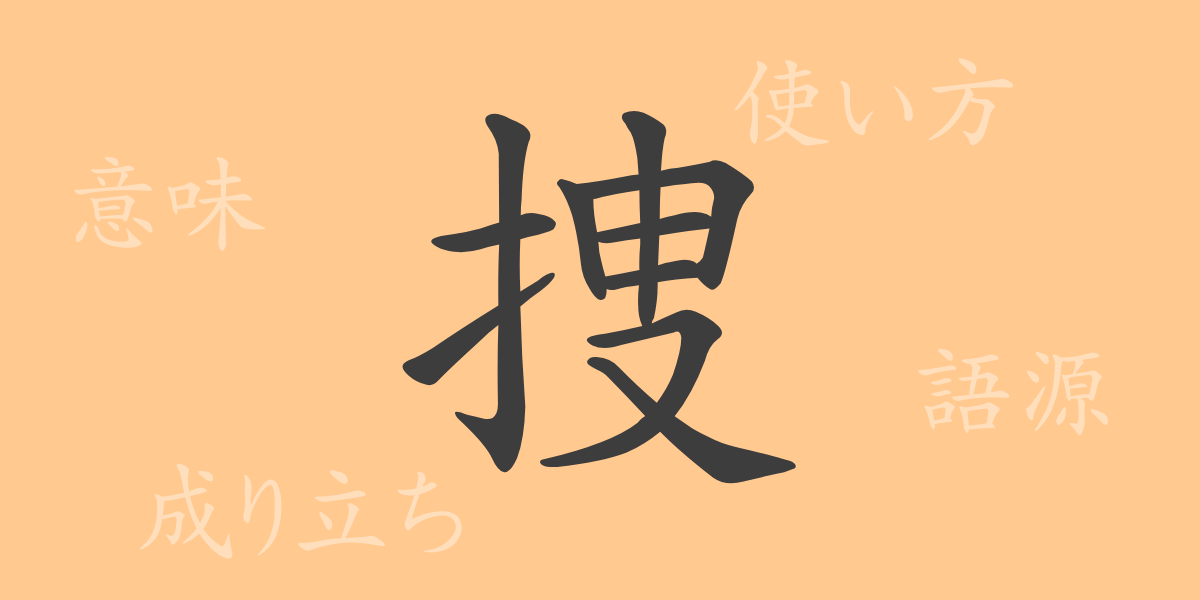The beauty of Japanese Kanji lies in its complex and profound forms, reflecting the culture and history behind the language. One such commonly used Kanji is “捜” (さがす – ソウ), which is frequently used in everyday life. This article delves into the origins, meanings, usages, and even the idiomatic expressions and proverbs related to the Kanji “捜” (さがす – ソウ).
Origins of 捜 (さがす – ソウ)
The Kanji “捜” (さがす – ソウ) combines the radical for “hand” (手) with the character “叟,” which originally meant to spin thread. In ancient China, the character was created to depict the meticulous action of spinning thread by hand, symbolizing the thorough search for something. It embodies the idea of carefully seeking out items or truths over time.
Meaning and Usage of 捜 (さがす – ソウ)
“捜” (さがす – ソウ) encompasses meanings such as “to search,” “to find out,” and “to conduct a search.” It refers to the act of diligently searching for lost items or hidden truths. In legal terms and crime dramas, the word “捜査” (investigation) is often used, indicating the process of gathering evidence or information to uncover the truth of a crime.
Readings, Stroke Count, and Radical of 捜 (さがす – ソウ)
Here’s the basic information about the Kanji “捜” (さがす – ソウ):
- Readings: On’yomi “ソウ” (ソウ), Kun’yomi “さがす” (さがす)
- Stroke Count: A total of 10 strokes
- Radical: Hand (手)
Idioms, Phrases, and Proverbs Using 捜 (さがす – ソウ) and Their Meanings
There are numerous idioms and phrases that include “捜” (さがす – ソウ), each conveying rich expressions of the Japanese language. Here are some examples:
- 捜査 (そうさ) – Investigation of a crime.
- 捜索 (そうさく) – Searching for lost items or people.
- 捜索救助 (そうさくきゅうじょ) – Search and rescue operations for people missing due to disasters.
- 捜し物 (さがしもの) – The act of looking for something.
Summary on 捜 (さがす – ソウ)
The Kanji “捜” (さがす – ソウ) plays a crucial role in depicting the act of searching, integral to our language. Understanding its origins, evolution, and various contemporary usages of “捜” (さがす – ソウ) enhances our grasp of Japanese, enabling a richer and more effective communication. This article sheds light on the diverse aspects of “捜” (さがす – ソウ), emphasizing its significance in both historical and modern contexts.

























